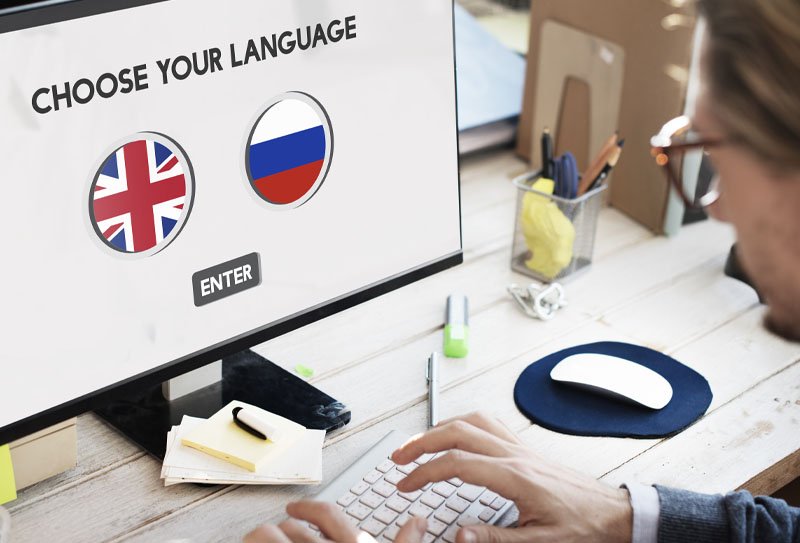Blog
Translation Trends in 2024
Developments in the Translation World

Translation Trends in 2024: What Has Changed?
The rapid advancement of the digital age and the increase in global communication have led to significant changes affecting the translation industry. The year 2024 stands out as a period when new trends in the translation world have emerged and sector dynamics have been reshaped.
In this article, we will explore the prominent trends in the translation industry in 2024 and how these trends are transforming the sector.


The Rise of AI-Powered Translation Tools
Artificial Intelligence (AI) technologies have gained significant momentum in the translation industry over the past few years. In 2024, the use of AI-powered translation tools has become even more widespread.

The Rise of AI-Powered Translation Tools
Artificial Intelligence (AI) technologies have gained significant momentum in the translation industry over the past few years. In 2024, the use of AI-powered translation tools has become even more widespread.
According to data from 2023, 30% of professional translation services worldwide were performed using AI-powered tools, and this rate is expected to rise to 40% in 2024.
Google Translate and DeepL are among the most popular AI-powered translation tools. These tools provide users with real-time translation services and continuously improve translation quality through deep learning algorithms.
AI-powered translation tools accelerate the translation process and facilitate overcoming language barriers. These tools offer high accuracy for repetitive and straightforward texts, reducing the workload of human translators. However, for translating cultural nuances and complex texts, human expertise remains essential. In this context, the collaboration between AI and human translators enhances the efficiency and effectiveness of translation processes.

Increase in Demand for Specialized Translations
The year 2024 has seen a significant rise in demand for specialized translations rather than general translation services. Fields such as legal, technical, medical, and financial translations require precise terminology and domain-specific knowledge.

Increase in Demand for Specialized Translations
The year 2024 has seen a significant rise in demand for specialized translations rather than general translation services. Fields such as legal, technical, medical, and financial translations require precise terminology and domain-specific knowledge.
According to a 2023 study conducted in the European Union, legal, medical, and technical translations account for 45% of all translation service demands. This proportion is projected to reach 50% in 2024.
Especially in medical translations for clinical research in Europe, the use of accurate terminology is crucial. Errors in such translations can jeopardize treatment processes and patient safety. As a result, there is increasing demand for translators with specialized training in these fields.
Also, especially in legal and medical translations, incorrect translations can lead to serious consequences. Therefore, in 2024, companies and individuals are showing greater sensitivity in these types of translations and prefer to work with specialized translators. The demand for specialized translation services is increasing the value of professional translators in the industry and also driving the need for trained translators in these fields.

The Importance of Localization and Cultural Adaptation
In an increasingly globalized world, mere language translation is no longer sufficient. In 2024, the importance of localization and cultural adaptation has become even more pronounced. Localization refers to the process of adapting a product or service to suit the target market, extending beyond language to include cultural, social, and economic factors.

The Importance of Localization and Cultural Adaptation
In an increasingly globalized world, mere language translation is no longer sufficient. In 2024, the importance of localization and cultural adaptation has become even more pronounced. Localization refers to the process of adapting a product or service to suit the target market, extending beyond language to include cultural, social, and economic factors.
According to a 2024 study, 72% of consumers prefer localized content, and such content is reported to increase brand loyalty by 30%.
Coca-Cola's localized advertising campaigns for different countries are a prime example of the importance of localization. The company has tailored its messages to fit the cultural characteristics of each country, achieving global market success as a result.
A brand's advertising campaign must not only be accurately translated into the target language but also include messages that are culturally appropriate for the target audience. Localization processes help brands succeed in global markets while avoiding cultural missteps. As a result, in 2024, the demand for localization experts has risen, and companies have started investing more in localization services to provide content that suits their target markets.

The Evolving Role of Translators: Cultural Ambassadors
In 2024, the role of translators has transcended mere text translation to become that of cultural ambassadors. Understanding and reflecting the cultural and social context of the language in which a text is translated has become one of the most important tasks for translators.

The Evolving Role of Translators: Cultural Ambassadors
In 2024, the role of translators has transcended mere text translation to become that of cultural ambassadors. Understanding and reflecting the cultural and social context of the language in which a text is translated has become one of the most important tasks for translators.
Disney's animated films, for example, are adapted to suit local cultures before being shown in different countries. In this process, translators and localization experts assume the role of cultural ambassadors, tailoring the content of films to fit the target culture.
Especially in advertising and marketing translations, cultural adaptation is crucial. Incorrect translations can lead to negative reactions in the target market. Therefore, translators ensure that cultural sensitivity is considered in translation processes, delivering accurate messages. This requires translators to have not only linguistic skills but also cultural awareness.

Ethical Issues in Translation Technologies
The widespread use of AI-supported translation tools has brought ethical issues to the forefront of the translation sector in 2024. Concerns about data privacy and accuracy of AI-based translation tools have increased discussions about the use of these technologies.

Ethical Issues in Translation Technologies
The widespread use of AI-supported translation tools has brought ethical issues to the forefront of the translation sector in 2024. Concerns about data privacy and accuracy of AI-based translation tools have increased discussions about the use of these technologies.
A survey conducted in 2023 revealed that 60% of users of translation services are concerned about the data privacy of AI-based translation tools.
The handling and protection of user data, as well as the quality and accuracy of AI-generated translations, have become significant issues. Particularly with texts containing sensitive and personal information, the risks of using AI tools must be considered.
In 2024, these issues have highlighted the need for establishing ethical standards in the translation sector and exercising caution in the use of AI tools. Professional translators continue to provide accurate and reliable translation services while leveraging the advantages of AI technologies and adhering to ethical standards.

Practical Translation Training and Professional Development
2024 has seen innovations in translation education and professional development. With rapid changes in translation technologies and trends, the need for translators to engage in continuous learning and development has increased.

Practical Translation Training and Professional Development
2024 has seen innovations in translation education and professional development. With rapid changes in translation technologies and trends, the need for translators to engage in continuous learning and development has increased.
According to research conducted in 2023, 80% of translators regularly participate in training courses for professional development. Additionally, universities have updated their curricula to include new technologies and practical training.
Translation training now covers not only language skills and translation techniques but also how to effectively use AI tools and manage ethical issues. Practical training helps translators develop their skills while adapting to industry innovations, ensuring they can meet the sector's evolving needs.
Keeping Up with Innovations in the Translation Sector
2024 is marked by numerous innovations and trends in the translation world. AI-supported translation tools, localization processes, specialized translations, and cultural adaptation are among the key topics of the year. Translators and translation service providers are staying abreast of these innovations to continue offering the best service to their clients.
At Nibras Tercüme, we closely follow these trends, providing high-quality and reliable translation services to our clients. We also lead in implementing practices that shape the future of the industry.
